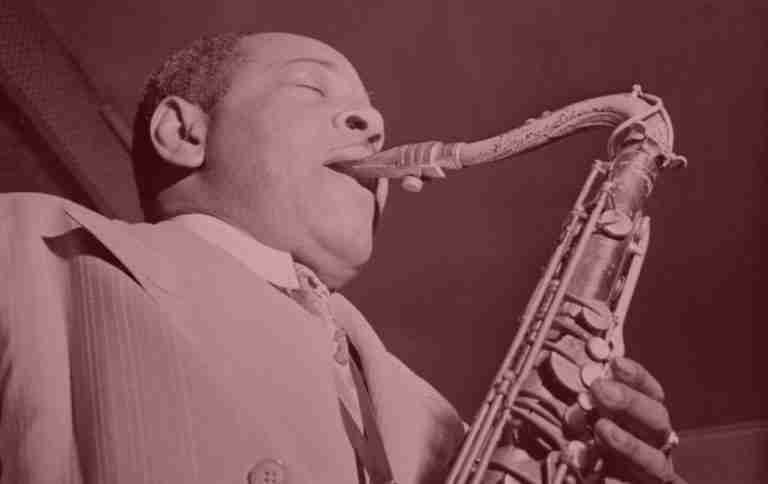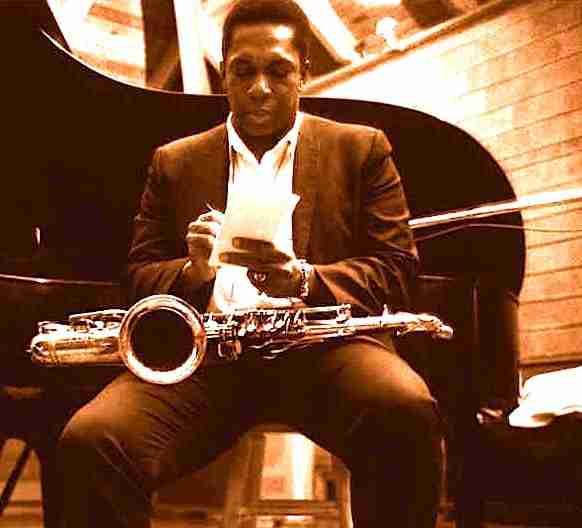Wow! You’re sitting in the audience at a sold out concert and your favorite musician has just taken the stage. Flawless technique, impeccable sound, and endless creative musical lines flow from the stage and fill up the concert hall. “Unbelievable,” you think. “This musician must be super-human!” They just might be, but have you ever wondered what this master musician is like in person?
What would it be like if you struck up a conversation after the show? What if you could see inside his/her practice room?
I’m sure your imagination could run wild with the possibilities, but be careful…
What you’re expecting isn’t always what you get. In fact, your perception of great players can often be completely wrong.
I’ve been pretty lucky to come in contact with some of the best musicians in the world and after each encounter, I always walk away surprised by what I find.
Here are seven qualities and habits of the best musicians that will catch you off guard.
1) It’s all about the fundamentals
It never ceases to surprise me.
I finally snag a lesson with a big name improviser and immediately envision an hour of life-changing insights, new harmonic possibilities, and secret licks that will transform my playing. However once I show up at the lesson, it’s all about the fundamentals.
Long tones, breathing, articulation, a single chord progression, time, scales, a standard tune…
Why? Well it’s no secret, the fundamentals of musicianship are the building blocks to becoming a great improviser.
And everyone ignores them!
“The minute you get away from fundamentals – whether its proper technique, work ethic or mental preparation – the bottom can fall out of your game, your schoolwork, your job, whatever you’re doing.”~Michael Jordan
You see, the path to becoming a great improviser isn’t about lightning fast double-time lines, super complex harmonies, or even technical acrobatics – it’s all about time, sound, and crafting beautiful musical phrases.
These are the basic tools of your musical expression and they are much more involved than you think.
It’s in those scales, chords, intervals, and subtleties of time that the best players find an endless source of practice.
Intense focus on the fundamentals is the one thing that separates decent musicians from the best musicians on the planet.
2) Even the best players don’t know every tune
I’ll be honest.
I’ve never met a player that knows every tune…(except maybe for Harold Mabern).
This seems like common sense, right? After all, who knows 5,000 tunes?
Yet it always seems to surprise me. For years at jam sessions and clinics I’ve heard the same phrase “You need to know all these tunes!”
But when it comes down to it, even the best players don’t know every tune.
There is no question that they have a solid repertoire and can play exceptionally well, but this is because they’ve developed great ears, have listened to a ton of music, and have spent years building their repertoire.
However, no matter who you are, you’re going to encounter a situation where you don’t know a tune…and this situation is going to test you.
The difference between an amateur and a master is that the best players have the skills to figure out these unfamiliar tunes on the spot.
They can hear an interval, a melody, a chord quality, or a chord progression and immediately know what it is and what to play over it. This skill is more valuable than knowing every tune ever written.
3) Learning never stops
Some musicians reach a point where their playing is good enough.
Learning might stop after you graduate from school, practicing winds down when you start getting gigs, and the search for new ideas is abandoned when you start teaching students.
But not for the best players.
Learning for the greatest musicians is a lifelong process. The best players are always students of the music.
In school I remember being shocked when I would see Mulgrew Miller go to the piano in between teaching ensembles to work out lines and tunes. I would stand there and listen, wondering, “What is he practicing? What in the world does he have to work on?”
This was a real eye-opener. One of the reasons he was such an amazing player was that he never stopped learning or working to get better. Each day he continued searching for new possibilities in the music, there was always something more to discover.
4) It’s all about the music, not your ego
Inexperienced players can have big egos, good players can have big egos, and even great players can have big egos.
However, musical masters are another story.
You might expect that the greatest improvisers are completely full of themselves, yet I’ve been continually surprised at how humble these musicians are.
While all great players are confident in their abilities, the greatest players understand that there is always room to get better. At the highest level the goal of music isn’t about competition and winning, it’s about greater understanding, mastery, and creating your personal sound.
At a certain point an inflated ego is going to get in the way of your improvement. Why keep practicing and pushing yourself if you think you’ve already accomplished everything? As Roy Hargrove talks about in the clip below, nothing will keep you more honest than playing with the greatest musicians you can:
5) Music is as serious as your life
The greatest players don’t treat music like a weekend hobby.
Practice isn’t something that they begrudgingly devote a few hours to each day.
Great improvisers don’t go through the motions on a gig and you won’t find a world-class player that is ok with mediocrity or sub-par musicianship.
Music is a calling that you must bring your best to whether you’re listening, practicing, or performing…or just living.
The best players have the highest level of dedication and seriousness when it comes to their musicianship and creative vision.
Every practice session is essential, every jam session is a chance to test your skills, and every performance is critical to your improvement. They aren’t swayed by popular belief and they don’t settle for second rate quality, in themselves or the other musicians around them.
This is not that surprising, right?
What is surprising however, is how many musicians are putting in a tiny bit of effort in the practice room and expecting huge results. Don’t let this be you.
6) Even great players had to struggle
Look at the biggest names in jazz today.
Seeing their faces on magazines or their names headlining jazz festivals around the world, it’s hard to imagine that they were once struggling unknown musicians.
This is because you’re only seeing the finished product – the “fruits” of their labor. What you can’t see are the years of practice and struggle that got them there.
“Never throughout history has a man who lived a life of ease left a name worth remembering.”~Theodore Roosevelt
Just like every successful artist, these players had to struggle to make a living on their own terms as a musician. There was a time when they spent hours alone in the practice room, when no one knew their name, and when no one wanted to listen to them.
Check out this interview with Kurt Rosenwinkel where he relates a story about where he “…was pulling the cushions off the sofa to see if I could find some change to buy a slice of pizza.”
Or the video below, where David Binney talks about first coming to New York and getting by with a day job for 10 years.
Becoming a great improviser with an original voice is not easy, not even for the best players.
7) The ability to say “no”
If you want to be truly great at one thing, you can’t do everything.
Each day has a limited number of hours and you have to choose where and when you spend your time and creative energy. This means saying “no.”
People are always vying for your attention and skills and the better you are, the more people there are that will seek to use your talents for their own projects.
Pretty soon you’re spending more time on other people’s project than your own. Instead of practicing and following your own creative vision, you’re caught up in rehearsals and gigs for music that doesn’t matter to you.
The greatest players have realized this and are selective of what they do with their creative energies. This means taking gigs that align with their musical vision, focusing on the projects that matter to them, and collaborating with musicians that have the same musical vision.
It means saying no to gigs and musical projects that are going to detract from your music.
This isn’t always the most lucrative route, but it’s the path that the greatest musicians have taken.
Perception vs. reality
Popular opinion would have you believe that the best musicians succeeded on talent and good luck.
However, this perception of great musicians is not always true and this mentality can lead you astray in your own musical journey.
If you would like to be a great musician as I would, keep these seven things in mind as you strive each day to improve.
You can hang around musicians that accept the status quo, that are ok with being mediocre, and that settle for sight reading tunes out of the real book on gigs.
Or you can strive to acquire these 7 qualities of the best improvisers on the planet – it’s up to you.












